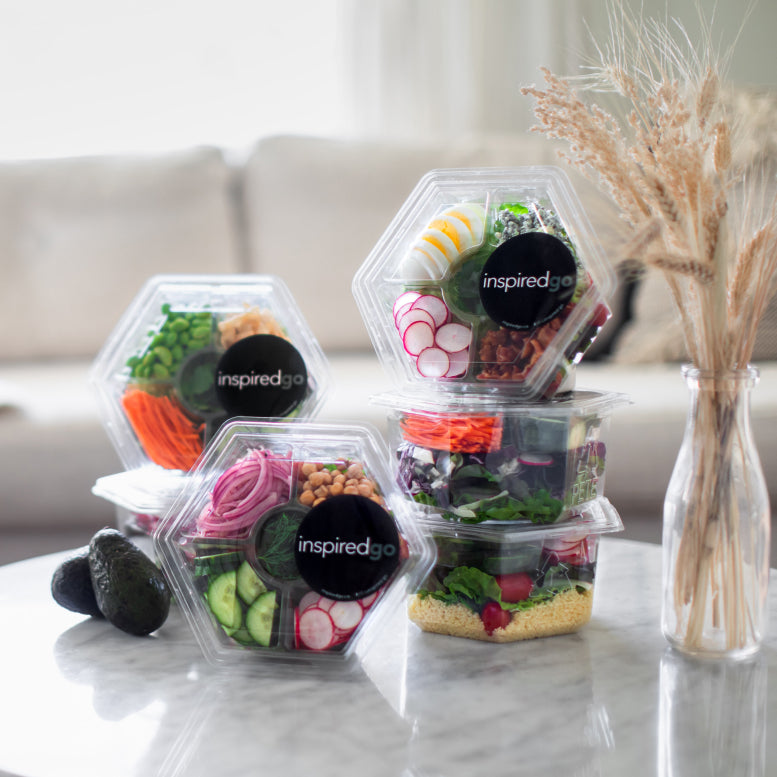Is A Vegetarian Diet Healthy?
Table of Contents
1. Embracing Health through a Vegetarian Diet
2. Are Eggs and Cheese Allowed on a Vegetarian Diet?
3. What Are Healthy Fats to Eat on a Vegetarian Diet?
4. How Can Vegetarian Meal Delivery Support Long-Term Health Goals?
1. Embracing Health through a Vegetarian Diet
A vegetarian diet can indeed be a healthy choice, provided it is well-planned and balanced. Such a diet is often rich in fiber, vitamins, and minerals, and tends to be lower in calories and saturated fats, lending to a wide array of health benefits. Research has shown that vegetarians often have lower cholesterol levels, blood pressure, and body mass indexes compared to non-vegetarians. They also tend to have a lower risk of developing chronic diseases such as heart disease, diabetes, and certain types of cancer. However, a vegetarian diet may require careful planning to ensure adequate intake of essential nutrients like protein, iron, calcium, and vitamin B12, which are predominantly found in animal products. It is also important to remember that a vegetarian diet can be unhealthy if it heavily relies on processed foods rather than whole, fresh foods. Maintaining a balanced diet with a variety of fresh fruits, vegetables, whole grains, and plant-based proteins can contribute to an overall healthier lifestyle.
Order fresh salads today →


2. Are Eggs and Cheese Allowed on a Vegetarian Diet?
The inclusion of eggs and cheese in a vegetarian diet depends on the specific type of vegetarianism followed. Lacto-vegetarians consume dairy products but avoid eggs, while ovo-vegetarians include eggs but not dairy. Lacto-ovo vegetarians include both dairy and eggs in their diet. Vegetarian meal delivery services cater to these preferences by offering customizable meal plans that align with individual dietary choices. Protein-rich ingredients such as eggs, paneer, and cheese are incorporated into meals to provide essential amino acids and maintain balanced nutrition. Pre-portioned servings prevent overeating, while nutritional labeling offers transparency regarding protein, fat, and calorie content. With vegetarian meal delivery, customers can easily follow their dietary preferences without worrying about meal preparation or ingredient sourcing.
Choose your salads and schedule delivery →
3. What Are Healthy Fats to Eat on a Vegetarian Diet?
Healthy fats play a critical role in energy production, hormone regulation, and brain function, and vegetarian diets offer numerous sources of these beneficial fats. Foods like avocados, nuts, seeds, olive oil, and dairy products are rich in heart-healthy fats. Vegetarian meal delivery services incorporate these ingredients into pre-prepared meals to ensure a balanced intake of essential fatty acids. Meals are designed to maintain a proper macronutrient balance, supporting overall health and sustained energy. Transparent nutritional labeling allows customers to monitor their fat intake, promoting dietary awareness. By offering ready-to-eat meals packed with healthy fats, vegetarian meal delivery simplifies achieving a balanced diet.
Get fresh salads and snacks delivered →
4. How Can Vegetarian Meal Delivery Support Long-Term Health Goals?
Inspired Go supports long-term health goals by offering nutritionally balanced vegetarian meals crafted with fresh, high-quality ingredients. Each meal is portion-controlled and includes key nutrients such as fiber, plant-based protein, and antioxidants. Subscription services allow customers to schedule consistent weekly deliveries, eliminating disruptions in their dietary routines. Detailed nutritional labeling helps customers monitor their intake and align their meals with specific health goals, whether focused on weight management, energy levels, or overall wellness. By removing the barriers of meal preparation and planning, Inspired Go empowers customers to stay committed to their long-term health objectives through reliable and convenient meal delivery.
Try our fresh, ready-to-eat salads →
Frequently Asked Questions
Eating healthy without cooking is achievable by incorporating ready-to-eat nutritious options into your diet. Pre-prepared salads, fresh fruit, nuts, yogurt, and meal delivery services offering balanced meals are excellent choices. Look for meals high in fiber, protein, and healthy fats while minimizing processed ingredients. This approach ensures you maintain a nutritious diet even with a busy lifestyle or lack of cooking time.
Eating healthy on a budget involves planning meals around affordable, nutrient-dense ingredients. Prioritize staples like whole grains, beans, and seasonal vegetables, which are both inexpensive and nutritious. Opt for meal prep services or delivery plans that offer cost-effective options for healthy eating. Buying in bulk, reducing waste, and preparing meals at home also significantly reduce costs while maintaining balanced nutrition.
A healthy diet is one that emphasizes whole, unprocessed foods like fruits, vegetables, lean proteins, whole grains, and healthy fats. It provides the necessary nutrients for energy, growth, and disease prevention while limiting added sugars, saturated fats, and highly processed foods. A balanced diet supports physical and mental well-being and can be tailored to meet individual nutritional needs.
To eat more healthily, focus on gradually incorporating whole foods into your meals. Start by adding more vegetables to your plate, swapping refined grains for whole grains, and opting for lean protein sources like fish or legumes. Stay hydrated and avoid sugary beverages. Small, consistent changes can lead to long-term improvements in dietary habits without feeling restrictive.
Eating healthy is essential for maintaining overall health and well-being. A balanced diet reduces the risk of chronic diseases such as diabetes, heart disease, and obesity while supporting energy levels, mental clarity, and immune function. Consuming nutrient-dense foods provides your body with the vitamins and minerals it needs to function optimally, contributing to a longer, healthier life.

